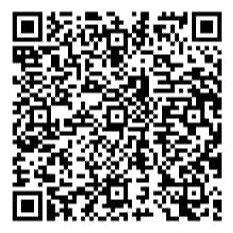The Land of Blacks, the Land of Gold, the Land of Slaves-for centuries West Africa was a mystery to the outside world, known only for the colour of its peoples’ skins, its fabulous mineral wealth and the seemingly endless supply of strong young men and women that could be taken from its shores to a life of forced labour. Those who looked closer at this unknown land found a galaxy of cultures so varied and so different from anything they had known before that they were baffled by its complexities.Today there are more than 130 million people living in West Africa,in an area stretching from the Atlantic coast of Mauritania and Senegal in the west to Lake Chad and Mount Cameroun in the east. Although the region has been divided into some fifteen modern nation states, the
diversity of cultures remains staggering. Nigeria alone has more than 300
quite distinct ethnic groups, speaking almost as many different languages.
A Fulani cattleman in the north of the country feels he has little in common
with a Yoruba bureaucrat in the Nigerian capital.Yet just as the peoples of Europe recognize some indefinable quality
which is ‘European’ and which binds them together, so there is an underlying character which is West African. Over the centuries up to colonial times, these many cultures have been woven into a tapestry of endless different colours, designs and pictures-a tapestry with a uniqueness and a grandeur of its own. It is marked with a profound African humanism,coupled with a realistic appraisal of the material aspects of life:
“Then they said that God did give unto them no gold but the earth did give it unto them wherein they did seek it and find it out. Nor did God give unto them neither millet nor corn but the earth did give it
unto them when they did sow it and afterwards at the right time did
reap and garner it. And for the fruits, these the trees did give unto them
which they themselves had planted … The young goats or lambs did come from the old ones. The sea did give unto them fishes and they needs must catch them therein … These things did come not
from God but were brought forth from the earth and from the water and were gained by their labour.’ (Report by G. A. von Dantzig,1603, quoted in J. Jahn Muntu London 1961)
Black Kingdoms Black Peoples, The West African Heritage -Anthony Atmore and Gillian Stacey
Click on the button below to contact us on WhatsApp, and buy.
HOW TO PAY
You can pay send your payment at any of the following UPI IDs, or scan the QR code, or send the payment directly to our bank:
INDIA POST PAYMENTS BANK

(IPPB) UPI ID= 9563646472@postbank
Malay De Sarkar
A/C No: 100005759940
IFSC: IPOS0000001
Mobile: 9563646472
STATE BANK OF INDIA

(SBI) UPI ID= 9563646472@sbi
Malay De Sarkar
A/C No: 32004843406
IFSC: SBIN0000162
Mobile: 9563646472


